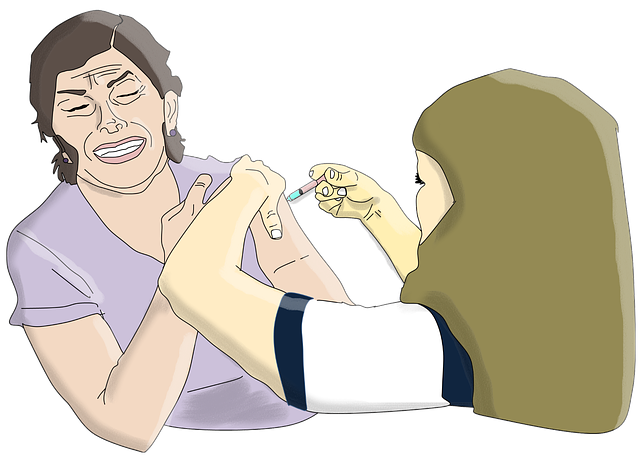In Georgia, elderly sexual assault is a pressing issue in nursing homes, with many cases going unreported due to victim vulnerability. Elderly sexual assault lawyers GA play a vital role in advocating for justice, guiding victims and families through complex legal processes, and ensuring nursing homes uphold elevated care standards. These specialists help hold perpetrators accountable, offer crucial guidance for recovery, and push for safer institutional environments. Prevention strategies include staff training, clear interaction protocols, robust reporting systems, and transparent record-keeping to facilitate identification and prosecution.
“Uncovering a pressing issue within Georgia’s nursing homes, this article delves into the complex topic of sexual assault against elders. With a focus on legal aspects, it explores Georgia’s sexual assault laws and their application in long-term care settings. We examine the alarming prevalence of elderly sexual abuse, empowering victims and families with knowledge of their rights. Furthermore, it highlights the responsibilities of nursing home staff and facilities, offering strategies to prevent and hold accountable those who violate the trust and dignity of our seniors. For legal guidance, consider consulting experienced elderly sexual assault lawyers in GA.”
Understanding Sexual Assault Laws in Georgia

In Georgia, sexual assault laws are designed to protect individuals from non-consensual sexual acts or attempts thereof. When it comes to elderly residents in nursing homes, these laws take on added importance. Elderly sexual assault cases often involve vulnerable populations who may struggle to communicate or defend themselves, making legal action crucial to ensure justice and prevent future incidents. If you or someone you know has experienced sexual assault in a nursing home, consulting with an elderly sexual assault lawyer GA can provide guidance and support through the legal process.
Georgia laws define sexual assault as any unwanted sexual contact, including touching, without consent. In institutional settings like nursing homes, the duty of care is heightened, and facilities are required to have policies in place to prevent and address such incidents. Understanding these laws and the rights of elderly residents is essential for both families and legal professionals when navigating cases of sexual assault within nursing homes.
Prevalence of Elderly Sexual Abuse in Nursing Homes

Sexual abuse of the elderly is a critical and often overlooked issue in nursing homes across Georgia. Studies indicate that cases of elderly sexual assault are more prevalent than reported, with many victims too frail or afraid to come forward. Vulnerable seniors, particularly those with dementia or cognitive impairments, are at increased risk due to their diminished ability to consent and communicate.
Given the sensitive nature of these incidents, having knowledgeable elderly sexual assault lawyers GA is essential for victims and their families. These attorneys specialize in navigating complex legal systems and advocating for justice when nursing home staff violate the trust and safety of residents under their care. Awareness and prompt action are crucial to addressing this pervasive problem and ensuring accountability for perpetrators.
Legal Rights of Victims and Their Families

When a loved one experiences sexual assault in a nursing home, it’s crucial to understand their legal rights and options. If you or your family member are victims of such an egregious act, elderly sexual assault lawyers in Georgia can provide invaluable guidance. They will help navigate complex laws surrounding elder abuse and ensure that the rights of both the victim and their family are protected.
These attorneys specialize in holding nursing homes accountable for failing to provide safe environments for residents. They can assist with filing legal claims against responsible parties, seeking compensation for medical expenses, emotional distress, and other damages. With their expertise, victims and their families can secure justice and hold the perpetrators liable while also gaining access to resources that support recovery and rehabilitation.
The Role of Nursing Home Facilities and Staff

Nursing home facilities play a crucial role in the care and well-being of their residents, especially those who are vulnerable and depend on them for daily assistance. In Georgia, where elderly sexual assault cases have gained significant attention, nursing home staff members are expected to uphold the highest standards of safety and respect for the residents under their care. This includes preventing any form of abuse, particularly sexual misconduct.
The staff at these facilities should be trained to recognize potential signs of sexual assault or harassment among the elderly population. Given the intimate nature of personal care, nursing home employees must maintain professional boundaries while providing compassionate support. Unfortunately, instances of sexual abuse within nursing homes have led many families to seek justice with the help of elderly sexual assault lawyers in GA. These legal professionals advocate for victims’ rights and ensure that facilities are held accountable for their staff’s actions or inaction in protecting residents from harm.
Strategies for Prevention and Accountability

Prevention strategies are paramount in combating sexual assault within nursing homes. Elderly residents, often vulnerable and dependent on caregivers for their well-being, require stringent safety measures. Regular staff training is essential; educators should focus on recognizing signs of potential abuse, understanding consent, and implementing strict protocols for patient interaction.
Holding institutions accountable involves robust reporting mechanisms. Encouraging open dialogue between patients, families, and elderly sexual assault lawyers in GA can facilitate the identification and prosecution of perpetrators. Additionally, transparent record-keeping practices ensure that nursing homes maintain a history of incidents, facilitating better oversight and regulatory compliance.






